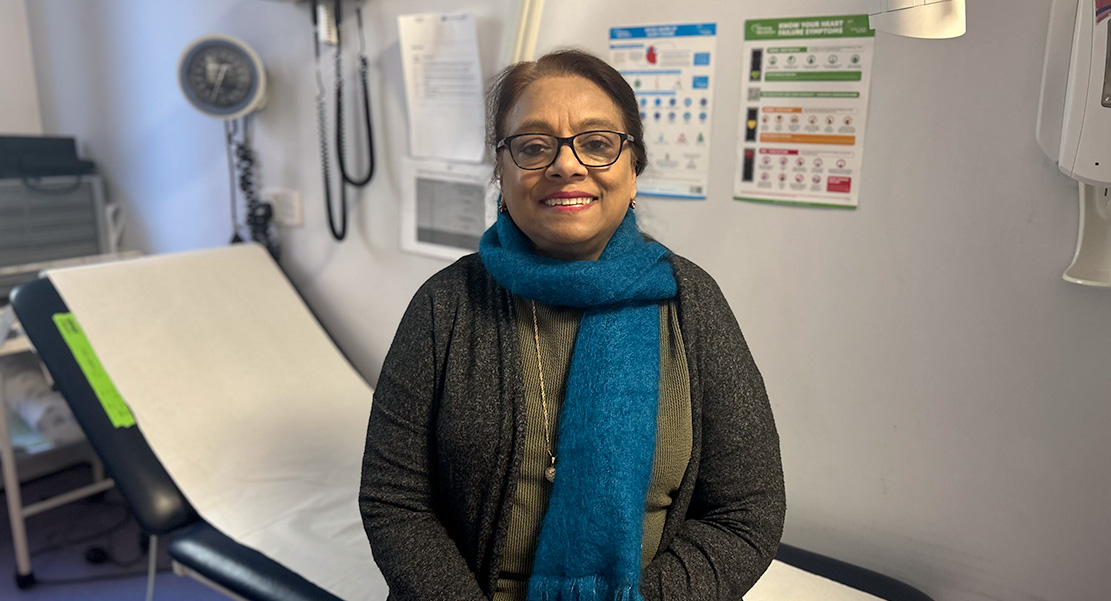
This story is adapted from an article originally written on 14 August 2024.
People who have a history of heart conditions in their family often have a higher risk of developing similar health problems.
Zabeen, a nurse from London, has seen this pattern play out in her own family. “My mother passed away at the young age of 64 from heart disease, and my father lived with angina and died at 75,” Zabeen said.
“My sister, who lives in Mauritius, had blocked arteries and has been through a triple bypass surgery. Thankfully she is doing well now. And my son is very strict with his diet but has high cholesterol.
“So when I was asked to take part in research I thought it would be a good way to help.”
Zabeen was attending an appointment at her local NHS hospital when she first heard about the health research study.
The opportunity to take part is a chance to break the cycle and help not only in her own family, but others too, Zabeen believes.
"The tablet being tested in this trial could help to better control cholesterol, which could be beneficial to the whole world. Why not take part? It's for future generations."
- Zabeen
The trial is testing the effectiveness of a drug called Obicetrapib in patients with atherosclerotic cardiovascular disease. This is a type of heart disease that causes high levels of cholesterol build up.
Zabeen’s personal experience of heart conditions began in 2009 when she was diagnosed with angina. She later developed blocked arteries. She has been to many hospital appointments over the years but does still experience some anxiety. Luckily the kindness of staff has helped her through.
“My visits took a little longer because whenever I go to the hospital my blood pressure shoots up”, Zabeen says. “Recently the doctor put me on a couch, switched off the light and told me to relax. So then it gradually went down. I was telling myself to relax because I knew I was in good hands.”
Thanks to this gentle approach from staff, Zabeen is happy to attend her research appointments. She doesn’t find that it takes too much time out of her busy life. There have been some mild side effects, such as nausea, but Zabeen says it didn’t last long.
The benefits of taking part exceeded Zabeen’s initial aim to help future generations. She also finds the extra health checks from taking part to be a welcome addition.
“You get frequent blood checks, which is beneficial to myself as they can find any abnormalities and it can be treated. It's also an opportunity to speak to doctors and nurses to get advice."
- Zabeen
Conversations with staff have gone beyond heart conditions too, leading to an asthma diagnosis which is now being treated. Zabeen is keen to spread the word about research and encourage others to find out more about it.
“I would encourage anybody to take part because the outcomes will be beneficial to everybody around the globe. I feel safe because I’m surrounded by doctors and nurses who will take the necessary steps if I have any difficulties. So yes, why not?”.
How you can get involved with research
Sign up to Be Part of Research to be contacted about a range of health and care research. Or check out our full list of studies to see if one is right for you.
And if taking part in a study doesn’t feel right at the moment there are other ways to get involved in research.




